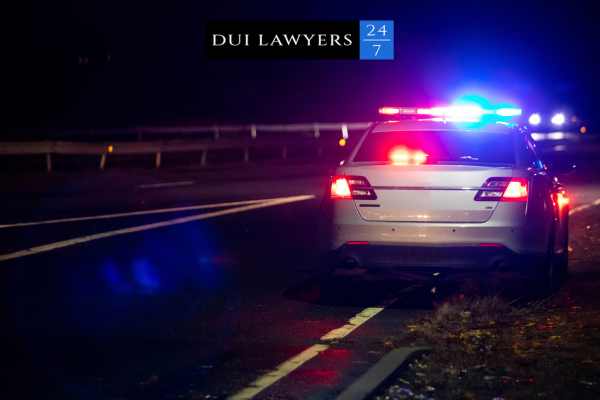DUI checkpoints were introduced following a Supreme Court decision that prioritized public safety from impaired and drunk drivers over the potential inconvenience of stopping and questioning drivers at sobriety checkpoints.
DUI checkpoints are utilized as a means for the state to address the issue of driving under the influence of drugs and drunk driving, which is of significant importance.
The purpose of these checkpoints is to identify and apprehend drivers who may be operating a vehicle while under the influence of alcohol based on reasonable suspicion, such as the smell or odor of alcohol.
Under traffic laws officers can randomly stop cars and ask for a valid driver's license, registration, and proof of insurance. They may also inquire about alcohol consumption or drug use if necessary.
If you have been charged for having a blood alcohol content above the legal limit contact DUI 24/7 at 847-999-7616 for help. Our McHenry County DUI attorneys offer a free consultation to discuss your case.
What to Expect at a DUI Checkpoint
A DUI checkpoint is a law enforcement official activity in which police departments set up a temporary roadblock to check drivers for signs of intoxication. The police officers typically stop vehicles at random for signs of impairment and the smell of alcohol and then ask the drivers to provide their licenses and registration.
Depending on the situation, officers may also inspect the vehicle for any indication that its occupants have been consuming alcohol or drugs.

In most states, there is no requirement that drivers answer any questions at a DUI checkpoint. However, if the officers smell alcohol or observe other signs of intoxication, such as slurred speech, or impaired driving they may administer field sobriety testing.
If the driver fails these standardized field sobriety tests or refuses to take them, they will be arrested for driving under the influence.
The Do's and Don'ts of a DUI Checkpoint
When you encounter a DUI checkpoint, it’s important to be aware of the dos and don’ts to ensure your safety as well as the safety of other drivers.
Do:
- Keep your license and registration readily available for inspection.
- Follow all directions given by law enforcement officers at the scene.
- Keep your hands in plain view at all times.
- Remain polite and respectful to law enforcement agencies officers.
Don’t:
- Don’t attempt to evade the checkpoint by turning around or making U-turns.
- Don’t exit your vehicle unless instructed to do so.
- Don’t provide false information to officers.
A police stop can be stressful, remain calm and courteous, follow instructions given by law enforcement, but also keep your rights in mind.
DO Have Identification Ready
Prepare your license, registration, and proof of insurance when approaching a DUI checkpoint. Keep these documents accessible for a quick check by officers. Answer questions about your activities before arriving.
If suspected of intoxication, you may be asked for a breathalyzer test. Be honest and respectful when interacting with officers. Refusing questions or providing false information can result in additional charges or legal action. Avoid trying to evade the marked police car's checkpoint by turning around.
DO Stay Patient
Approaching a DUI checkpoint requires patience. The process may take some time, and it's important to be courteous and cooperative with the officers. Remember that it can be stressful for both parties. Be prepared for a potentially long process, and prioritize safety for yourself and other motorists.
DON'T Volunteer Any Information
When approaching a DUI checkpoint, it is crucial to keep in mind that any statements made can be used as evidence in court. It is recommended to only provide your name and address. As per your legal constitutional rights, you have the option to remain silent and refrain from answering any further questions. It is important to note that the admission of drinking could have consequences.

When approaching a DUI checkpoint, it is crucial to understand your rights and the proper procedures. You will be asked to present your license, registration, and proof of insurance.
It is important to remain composed and polite, follow the instructions of the officers, keep your hands visible, and refrain from providing incorrect information or trying to avoid the checkpoint.
DON'T Take Field Sobriety Tests
When you encounter a DUI checkpoint, it is important to remember that you do not have to perform any field sobriety tests. Field sobriety tests in Illinois are tests designed by police officers to measure your coordination and physical ability, and include things like walking in a straight line, reciting the alphabet backward, or touching your nose with your finger.
While these tests may seem harmless to sober people, they can be used to incriminate you for having an above-limit legal blood alcohol concentration and should be avoided.
DON'T Take a Breathalyzer
If you find yourself at a DUI checkpoint, it is important to know that you do not need to submit to a preliminary alcohol breath test. These tests are voluntary and not required by law. Refusing to take a breathalyzer is your legal right and could make it more difficult for law enforcement officers to determine whether or not you are impaired, but it does not mean that you will automatically be arrested.
If you choose to take the preliminary breath sample test, you will likely be asked to blow into a certified breathalyzer machine twice. Be aware that refusing to take the breathalyzer does mean your license will automatically be suspended but makes it more difficult for you to be convicted.
Should You Make a U-turn Near a DUI Checkpoint?
For the majority of drivers, being pulled over by the police can be an unnerving experience. It’s even more nerve-wracking when you approach a drunk driving checkpoint. Knowing what are the checkpoint procedures when approaching a DUI checkpoint is important.
While it is perfectly legal, it is not advised to make a U-turn near a DUI checkpoint. Turning around draws immediate attention and suspicion to you and could end up bringing additional penalties, or legal action.
Instead of turning around, it’s best to follow the directions of the field officers manning the checkpoint. Remain courteous and honest throughout the process to ensure your safety as well as the safety of other drivers.
Contact Our Firm if You Were Charged With DUI at a Checkpoint
If you are charged with DUI at a checkpoint and brought to the police station, it is advisable to promptly seek the help of an experienced criminal defense attorney. The attorney can protect your rights and guide the best course of action.
Law enforcement officers at DUI checkpoints stop and question drivers and may request breath and/or blood samples to determine impairment. They may conduct illegal or unreasonable searches.
Get legal help to protect your rights. Contact our DUI defense firm at 847-999-7616.

